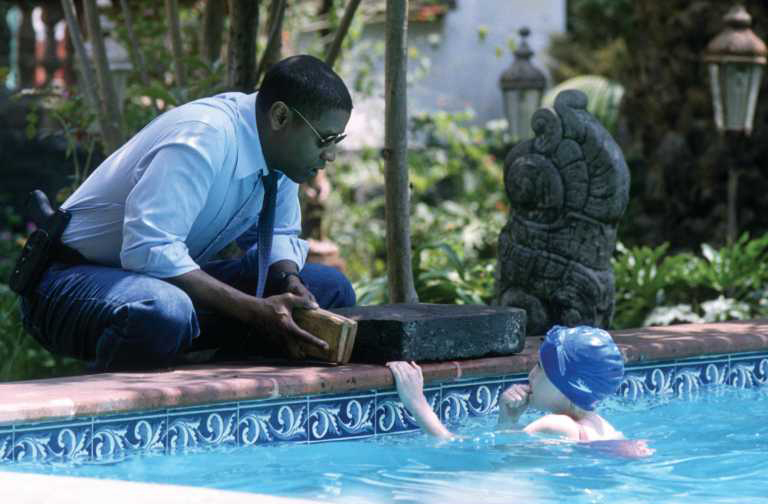
Tony Scott’s Man On Fire is unbelievably 20 years old. It is also a firm Outpost favorite. Based on a 1980 by A. J. Quinnell, and previously adapted into Scott Glenn movie in 1987, took some time to find its audience on release.
It received mixed reviews, largely due to the highly stylistic cinematography which some found off-putting. Others criticized the pacing, as it was not until the halfway point that things really heated up. However, it grew legs on home video, where people found the unapologetic revenge rampage refreshing while appreciating the hidden depths.
The movie follows former CIA Special Activities Division officer John Creasy (Denzel Washington) in Mexico, where he takes a bodyguard position with Samuel Ramos, a Mexico City automaker whose young daughter Pita requires a bodyguard simply for her kidnapping insurance policy to take effect.
Struggling with alcoholism, burnout, and guilt over his actions with the CIA, it takes a failed suicide attempt to help Creasy discover his newfound purpose as Pita’s protector. Then the inevitable happens, and it turns out that a well-organized and connected gang of Mexican kidnappers has just made a terrible mistake.
The whole movie positively oozes low-level malevolent violence – once things really start moving – all wrapped up in the late Tony Scott’s standard directorial flourishes.
Now a story has emerged from filming that movie commentator Todd Spence has shared via Twitter.
During filming of a pool scene that required an overhead shot, Tony Scott made use of the diving board to achieve the required height. However, what he did next was unexpected. According to screenwriter Brian Helgeland, this is what happened:
A naked Tony Scott barrelling towards you at speed, from height? It is little stories like this that make you miss Tony Scott. He had a, excuse the pun, maverick streak.
Screenwriter Brian Helgeland’s Tony Scott story during the filming of MAN ON FIRE is fantastic. pic.twitter.com/CCN5LfVUiv
— Todd Spence (@Todd_Spence) April 23, 2024
Man On Fire features a split between critics and audiences. Professional critics placed it at 39% on Rotten Tomatoes, whereas audiences gave it an A- score.
Journalist Paul Davies comments on this, stating the critical reception to Man on Fire in the United States was “somewhat less than kind” because critics did not like the vigilantism that Creasy uses. Davies argues that most critics missed the point entirely because Creasy takes absolutely no sadistic pleasure in his revenge, it is just a quest for information to reach those responsible.
Audiences, meanwhile, ate it up. It was well-regarded in Mexico, where people in the street had already had enough of cartel-driven criminal behavior. Original author Quinnell was also a fan of the adaption.
The post Scott’s MAN ON FIRE Stunt Revealed appeared first on Last Movie Outpost.







